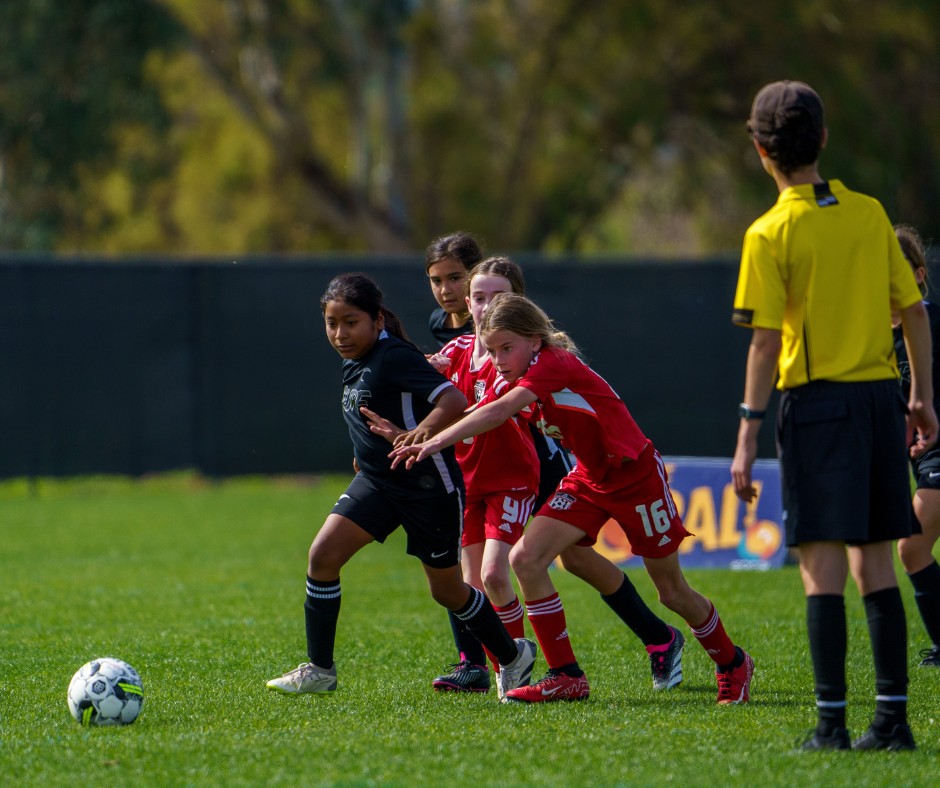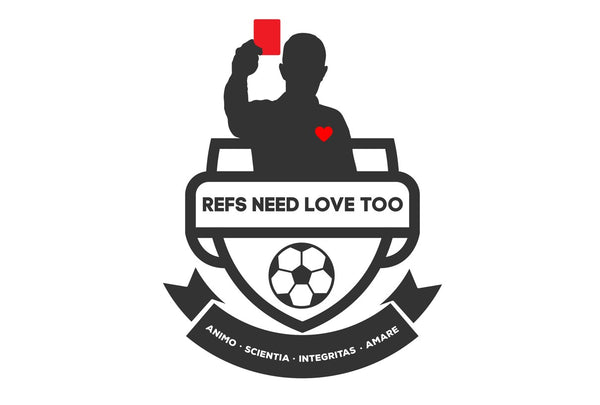
What Every New Referee Needs to Know (That You Won’t Find in the Laws of the Game)
Share
So you just took your referee course. You've bought your uniform and you know the difference between a direct free kick and an indirect free kick (at least on paper). Congratulations—you are officially a certified referee!
Now let me hit you with the reality check: none of that matters when you’re standing in the middle of a U-12 match with 22 kids chasing the ball like a swarm of bees, two coaches who may or may not understand offside, and parents who suddenly think they’re auditioning for ESPN commentary.
Here’s the truth: the referee course teaches you the laws of the game, but it doesn’t teach you the game of refereeing. And that’s a whole different match.
Today we’re going to talk about the unwritten rules—what every new referee really needs to know if you want to not only survive but actually enjoy this gig.
1. Look the Part—Because Perception Is Everything
Soccer is a game of first impressions. Players judge you in the first 30 seconds. Coaches decide if they can push you around before the first whistle. Parents and coaches size you up the moment you jog onto the field.
If you look sloppy—shirt untucked, socks falling down, sunglasses on—you’ve already lost credibility. But if you step onto the pitch looking sharp, confident, and in control, you’ll buy yourself instant respect.
Think of it like showing up to a job interview. You don’t want to be the person with wrinkled khakis and mustard on their shirt. You want to be the person who looks sharp and confident the moment you walk in.
2. Call Fouls Early, Call Fouls Often
New referees often “let them play.” And that’s great in theory—soccer flows beautifully when you let it breathe. But in grassroots soccer, “play on" all the time often turns into the game getting out of control with coaches and parents very upset.
If you see a foul, blow the whistle.
You’ll get more respect early on for calling a soft foul than for ignoring a hard one. Nothing gets a game out of control faster than a ref who swallows the whistle. Players stop trusting you. Coaches lose patience. Parents turn into an angry mob.
So, especially in your first season, lean toward calling fouls. Tightly called games are safer games for all participants. You'll adjust your foul recognition over time as you referee for older age groups and higher levels of competition.
3. Your Voice and Your Body Are Your Best Tools
The whistle is your instrument, but your voice is your amplifier. Don’t be afraid to use it. A loud “Red throw!” or “Watch the hands, number 8!” goes a long way toward preventing bigger problems.
And your body language? That’s 90% of communication. Blow your whistle like you mean it. Point with conviction. Stand tall. Even if you’re not 100% sure, look 100% sure.
Soccer players can smell hesitation like blood in the water. The second you look timid, they’ll test you. The second you look strong, they’ll trust you.
4. Parents and Coaches: Manage, Don’t Debate
Let’s be real: the loudest sound in youth soccer isn’t the whistle—it’s the parents. And sometimes, the coaches aren’t much better.
Here’s your mantra: you’re not here to win arguments. You’re here to manage the match.
If a coach asks a question calmly at an appropriate time, answer it. If they start yelling, don't add fuel to the fire. You don’t need to be rude, but you do need to be firm. Remember, you’re not a contestant on Soccer Debate Club. You’re the referee. You’re in charge.
Simple phrases such as "Coach, you are engaged in public and persistent dissent. Please stop or there will be consequences. This was your warning." If they don't stop, your next phrase, "Coach you were warned and now you're being cautioned. Please stop or there will be further consequences."
If the spectators are engaged in disruptive behavior, simply ask the coaches to address the parents and have them stop. If they don't, the coach needs to dismiss them and then provide the name of the parent for our supplemental report.
You are nobody's punching bag. We will give respect to the game and we expect and respect respect in return.
5. Movement Is Everything
A referee stuck in the center circle is like a goalkeeper afraid of diving—useless.
The more you move to get visibility or proximity to the play, the better you see. The better you see, the better you call. And the better you call, the more respect you get. Simple as that.
Even if you don’t have to run, sometimes just showing effort makes everyone believe in your calls more. Hustle sells credibility. Jogging from one half to the other might not change the foul you saw, but it changes how people perceive your commitment and credibility.
Think of yourself as part fitness influencer, part referee. You don’t need six-pack abs, but you do need to look like you care.
6. You’re Going to Mess Up—And That’s Okay
Every referee has their horror story. The missed handball. The wrong offside call. The penalty that wasn’t.
Guess what? You’re going to make mistakes. Lots of them. The key is to keep learning. Watch your games back in your head. Ask more experiences referees for advice. Let it go after the final commit to get better on your next match.
Refereeing is less about perfection and more about resilience. Soccer is 90 minutes of players making mistakes—bad touches, bad passes, missed shots. Referees are no different. Blow the whistle, own your calls, and move on.
7. Growth Mindset: The Real Secret Weapon
There are many reasons why referees quit after only one season. Here's the reality, it's not easy. when you're a player or spectator watching from the sidelines, it's easy to make calls. When you have the whistle in your hand and 100 people judging you for every call you make, it's very difficult.
Yes, there are some players, coaches, and spectators who can make life difficult for a Referee by voicing their opinions on your calls and questioning your credibility. That happens in every aspect of life. The soccer pitch is no different. Some people are just not nice.
But if you see every game as a chance to improve, you’ll get hooked. You'll be able to have difficult conversations with coaches and players who step over the line of what's acceptable. You’ll learn how to read the game, anticipate play, and manage emotions. You’ll build confidence not just as a referee, but as a person.
Refereeing teaches you life skills that carry off the pitch: leadership, communication, problem-solving. Stick with it long enough, and you’ll not only make extra cash—you’ll grow into a stronger version of yourself.
Final Whistle
The Laws of the Game can tell you the procedures for a penalty kick. They can tell you what constitutes an offside position. But they can’t teach you presence. They can’t teach you confidence. They can’t teach you how to survive a Saturday morning U-10 match with 40 parents screaming for a foul.
That’s the art of refereeing. And the good news? It’s a skill you can learn.
So tuck in your shirt. Blow that whistle like you mean it. Run like you care. Call the fouls. Manage the noise. Laugh at your mistakes. And above all—remember that Refs Need Love Too.
Because without referees, there is no game. And if you stick with it, you just might fall in love with refereeing the same way you once fell in love with soccer itself.
